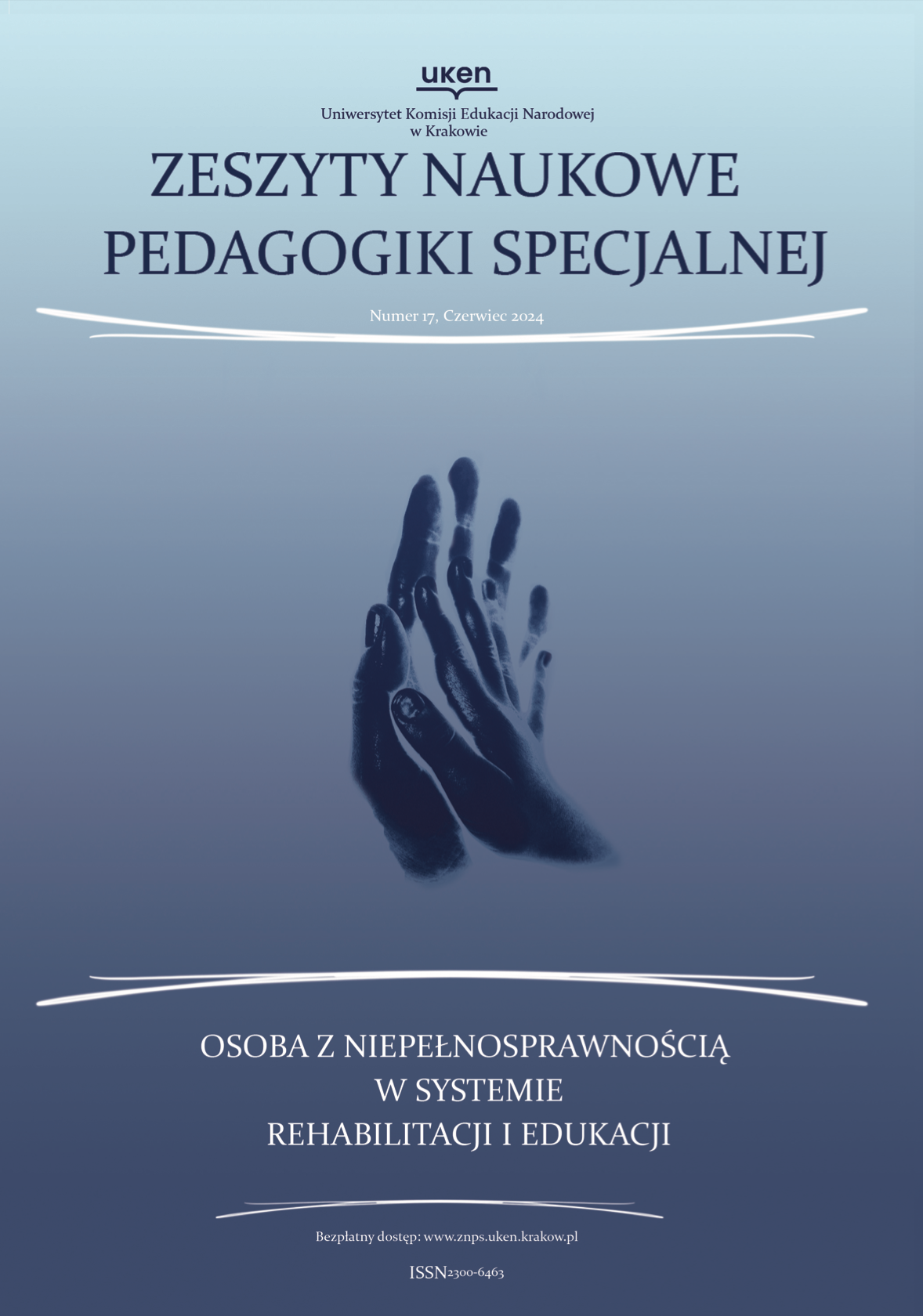Abstract
Despite changes in society regarding the perception of people with autism and systemic opportunities to facilitate education for all on an equal basis regardless of their limitations, it is noticeable that parents of neurotypical children have concerns about inclusive education. The aim of this article is to answer the questions: what is the level of knowledge of parents of 'non-disabled’ children about autism spectrum disorders and what is their opinion about inclusive education. In order to achieve the aim, a survey was conducted using two questionnaires developed by Nowakowska and Pisula. The results obtained indicate that the general level of knowledge of parents of neurotypical children about autism is quite high and similar to the group of primary school teachers and teaching students in the study of the authors of the questionnaires. The results of the second questionnaire show that respondents are mostly optimistic about the concept of inclusive education. However, when it comes to educating their children together with their peers with ASD, the attitude becomes more mixed, showing some concerns or doubts. Therefore, it can be concluded that the general knowledge about autism spectrum disorders, does not fully translate into an opinion about the education of students with ASD in mainstream institutions.
References
Białek, I., Nowak-Adamczyk, D. (2012). Edukacja włączająca – budowla o mocnych fundamentach. Biuletyn Rzecznika Praw Obywatelskich, 7, 11-18.
Bougeard, C., Picarel-Blanchot, F., Schmid, R., Campbell, R., Buitelaar, J. (2021). Prevalence of Autism Spectrum Disorder and Co-morbidities in Children and Adolescents: a Systematic Literature Review. Frontiers in psychiatry, 12, 744709. https://doi.org/10.3389/fpsyt.2021.744709
DeStefano, F., Shimabukuro, T. T. (2019). The MMR Vaccine and Autism. Annual review of virology, 6(1), 585–600. https://doi.org/10.1146/annurev-virology-092818-015515
Gałkowski, T., Kossewska, J. (2000). Autyzm wyzwanie naszych czasów. Kraków: Wydawnictwo Naukowe Akademii Pedagogicznej.
Halicki, J., Szafranek, A. (2016). Wybrane aspekty inkluzji społecznej. W: M. Halicka, J. Halicki, K. Czykier (red.), Niepełnosprawność. Poznać, przeżyć, zrozumieć (s. 151-164). Białystok: Wydawnictwo Uniwersytetu w Białymstoku.
Loomes, R., Hull, L., Mandy, W. P. L. (2017). What Is the Male-to-Female Ratio in Autism Spectrum Disorder? a Systematic Review and Meta Analysis. Journal of the American Academy of Child and Adolescent Psychiatry, 56(6), 466–474. https://doi.org/10.1016/j.jaac.2017.03.013
Nowakowska I., Pisula E. (2018). Wiedza na temat zaburzeń ze spektrum autyzmu i opinie dotyczące edukacji włączającej dzieci z tymi zaburzeniami u nauczycieli szkół podstawowych oraz studentów kierunków nauczycielskich. Człowiek – niepełnosprawność – społeczeństwo, 2(40), s. 29-47.
Pisula, E. (2021) Autyzm, przyczyny, symptomy, terapia. Wydanie VI zmienione. Gdańsk: Wydawnictwo Harmonia.
Płońska, E. (2020). Niewygodni, niewidoczni i niechciani–formy wiktymizacji osób z autyzmem. W: A. Drabarz (red.), Aksjologiczne i prawne aspekty niepełnosprawności (s. 57-75). Białystok: Wydawnictwo Temida 2.
Rynkiewicz, A., Janas-Kozik, M., Słopień, A. (2019). Dziewczęta i kobiety z autyzmem, Psychiatria Polska, 54(4), 737-752.
Treffert, D. A. (2014). Savant syndrome: realities, myths and misconceptions. Journal of autism and developmental disorders, 44(3), 564–571. https://doi.org/10.1007/s10803-013-1906-8


